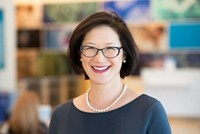Advertisement
Grab your lab coat. Let's get started
Welcome!
Welcome!
Create an account below to get 6 C&EN articles per month, receive newsletters and more - all free.
It seems this is your first time logging in online. Please enter the following information to continue.
As an ACS member you automatically get access to this site. All we need is few more details to create your reading experience.
Not you? Sign in with a different account.
Not you? Sign in with a different account.
ERROR 1
ERROR 1
ERROR 2
ERROR 2
ERROR 2
ERROR 2
ERROR 2
Password and Confirm password must match.
If you have an ACS member number, please enter it here so we can link this account to your membership. (optional)
ERROR 2
ACS values your privacy. By submitting your information, you are gaining access to C&EN and subscribing to our weekly newsletter. We use the information you provide to make your reading experience better, and we will never sell your data to third party members.
Comment
Comment: I’ve (not) got a secret
by Carolyn Ribes, director-at-large, ACS
September 25, 2022
| A version of this story appeared in
Volume 100, Issue 34

When I was a child, there was a television show called I’ve Got a Secret. Each week, panelists had to discover the guest’s secret by asking a series of probing questions. Some secrets were guessed by the panel, but many remained uncovered. When it comes to American Chemical Society products, programs, and services, we do not want to keep them secret. In this Comment, I aim to raise awareness of some ACS services that I really like.
Services for students and early-career chemists
Are you an undergraduate student seeking experience in industry or an undergraduate research opportunity? If so, you should be aware of the Get Experience website. It provides information on internships, co-ops, research experiences for undergraduates (REU), and other opportunities for undergraduate students. I encourage you to visit the site regularly, since the list is dynamic, or register to receive email updates when new opportunities are posted. Professors with openings in their labs can post the positions on the Get Experience site at no cost. Graduate students and postdocs looking for positions should search via the link Chemistry Jobs at the ACS Career Services website or visit the C&ENjobs website.
Services for industry professionals
If you are working in or considering a career in industry, I urge you to subscribe to Industry Matters. This monthly newsletter provides insights and advice to help grow your career. Each issue features stories and wisdom from experienced industrial chemists. The “One Minute Mentor” column provides powerful nuggets from industry leaders. In “What I Learned,” experienced people answer a series of questions about their career and their philosophy. Many of these stories have resonated with me and helped me reflect on my own experiences and as well as my future plans. Other columns include “Bridging Technology,” which covers the world of chemical technical professionals; “Beyond the Bench,” which highlights the range of chemistry career possibilities; and “The 5th Quarter,” with thoughtful advice and inspiring stories for those planning retirement.
Professional development support
The ACS Institute provides myriad training courses, both in person and online, for professional development and career enhancement. The first online course that I took was the Chemistry Advocacy Workshop, in which I learned about the intersection of science and policy and the importance of having scientists and engineers share our voices with policy makers. I have since successfully applied these learnings during phone calls with the offices of my senators and representatives in Congress. I learned to structure my messages with three key aspects of influential communications. For example, I start by asking them to support science, technology, engineering, and mathematics education and R&D funding; I relate compelling stories from my own life; and I provide tailored data on the impact of the chemical enterprise for the state and the need for a trained scientific and technical workforce. I also use this format when advocating for specific legislation. As a member of the Act4Chemistry Legislative Network, I receive information and prompts about high-priority issues so I can act quickly.
More recently, I completed the ACS Climate Change Advocacy Workshop. This new online course leverages the learnings from the Chemistry Advocacy Workshop while providing additional information about climate change. The science of climate change section covered an overview of atmospheric chemistry, how the atmosphere is monitored, and models and clever visualization tools that aid understanding of the impact of climate change. I learned about climate change’s effect on agriculture and society, as well as mitigation and adaptation strategies and technologies. From the section on climate change and government, I learned of the many ways that Congress and the executive branch can provide funding and resources to combat climate change. I had not appreciated the range of organizations within the US government, from NOAA and NASA to the DOE and the DOD, that are making contributions in this area. If you aren’t familiar with these acronyms, don’t worry—you will learn what they mean in the workshop. Both workshops are free and accessible online with an ACS ID.
Inclusive communication
The last resource I would like to highlight is the ACS Inclusivity Style Guide, which provides guidance for preparing written and verbal communication that is mindful of diversity in all forms and respects all people. Word choice is discussed, as well as how to use images and formatting to create bias-free content. Examples on addressing age, disabilities and disorders, gender and sexuality, and race and ethnicity are included. Language is always evolving, and it’s important to me that I demonstrate my commitment to diversity, equity, inclusion, and respect by using appropriate language for all audiences.
No matter what stage you are at in your career, I encourage you to check out these ACS resources and share them with other ACS members. Let’s make sure these offerings are not secrets to anyone in our community!
Views expressed are those of the author and not necessarily those of C&EN or ACS.





Join the conversation
Contact the reporter
Submit a Letter to the Editor for publication
Engage with us on Twitter